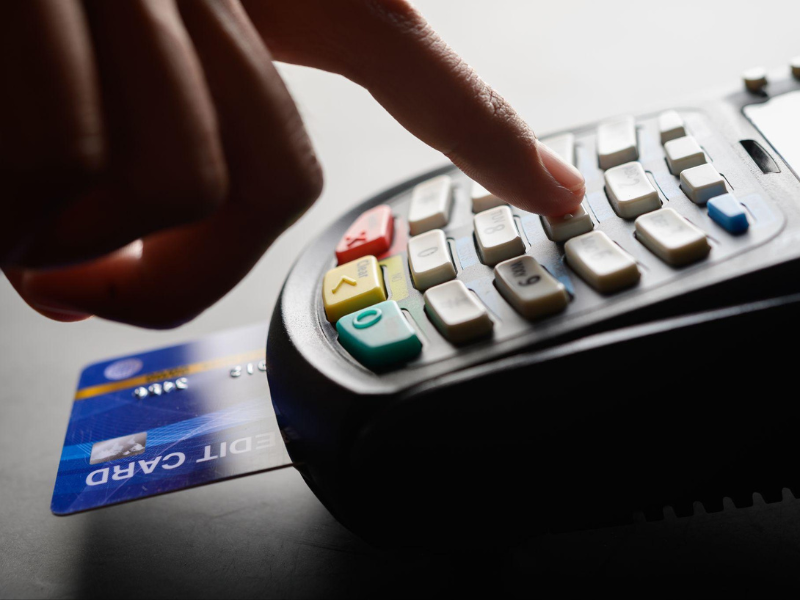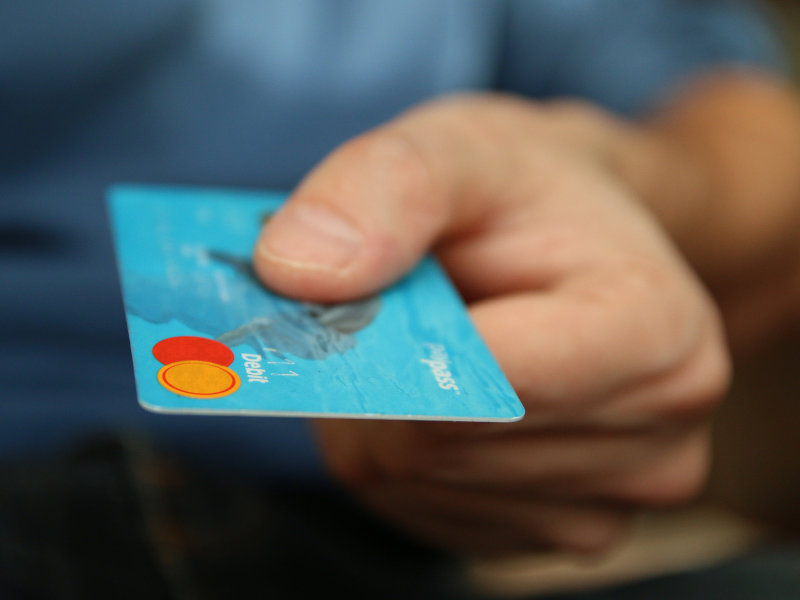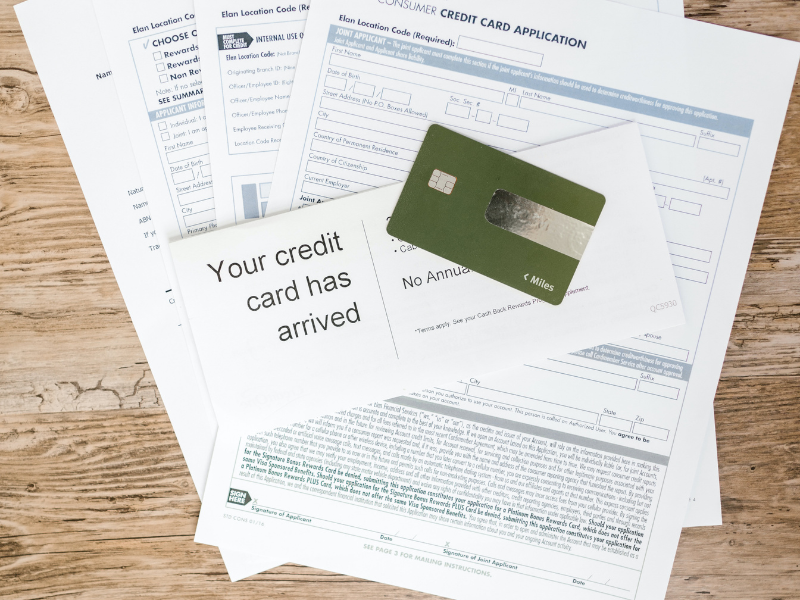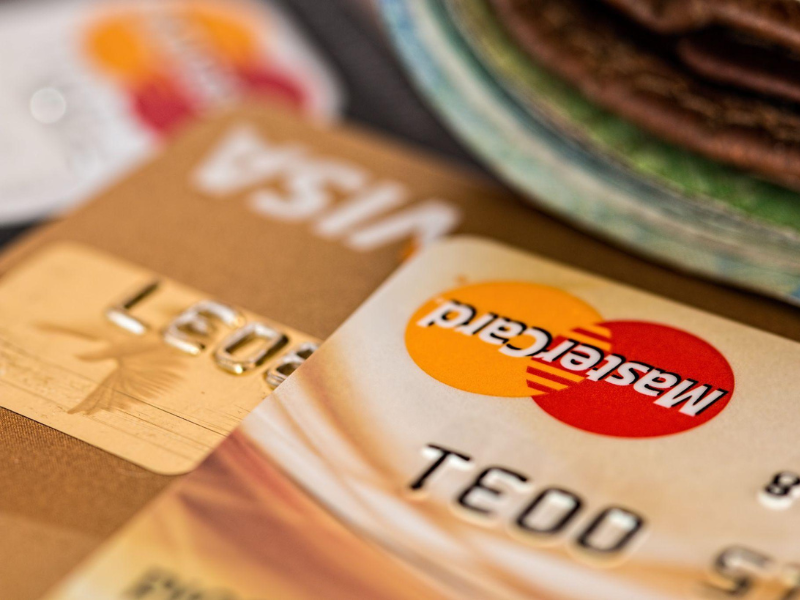What You Need to Know About Credit Card Debt
With the rising cost of living, inflation, and other factors, it’s unsurprising to find many people mired in credit card debt. According to the latest Quarterly Report on Household Debt and Credit, average credit card debt can add up to $986 billion.
Regarding age groups, Generation X has the highest credit card debt average, with an estimated $2,854 while Baby Boomers follow with an average of $6,245. After that, millennials have an average of $5,649. Although Gen Z has the lowest average debt of $ 2,854, they have the highest percentage increase of 25.1% from 2021–2022.
This data might seem overwhelming, so we aim to provide a comprehensive guide about credit card debt. Together, let’s explore how it accumulates and when it becomes unbearable. We will also share some informative details about the consequences and types of credit card debt.
What Is Credit Card Debt?
Before you think about different types of credit cards and get one, you must understand how you can accumulate debt from your credit card. Credit card debt is the money one owes to a credit card company. Every time you use a credit card, you essentially use the money you don’t have since your bank lets you borrow their money. When the due date comes, you must pay the total money you borrowed with the interest rate.
This debt is revolving, meaning it carries over from month to month. The cardholder can pay off the full balance, pay a minimum amount, or pay any part of the remaining balance. However, any compensation not paid off will be subject to interest charges, which is how credit card issuers profit.
Credit cards are not inherently bad since some offer discounts and perks. However, this becomes a problem when you fail to pay the bank on time or take out loans to pay your credit card balance. Credit card debt can accumulate quickly, especially when interest charges are compounded monthly.
You May Also Like: How to Pay Off Debt: 10 Ways to Kill Debt with a Low Income
How Does Credit Card Debt Accumulate?
Credit card debt accumulates month after month of continuous swiping without repaying the balance owed. The situation tenses when cardholders overuse their cards and cannot repay their debt. To avoid this, educate yourself with the right information to understand your credit card limit and your debt-to-income ratio.
That said, let’s take a look at a few ways how credit card debt can start piling up:
Excessive Credit Card Purchases
Credit cards are conveniently designed to encourage spending. However, users should be careful about what they charge to their credit cards. Unsupervised or excessive credit card balance is a reason why a lot of people fall into crippling debt.
The inability to pay off that balance by the due date makes the remaining amount roll over to the next billing cycle, plus the interest. This is when things can start turning into debt.
Interest Charges
Credit cards apply an annual percentage rate (APR) to any outstanding balance. The longer you don’t pay your due compensation, the more it will accumulate. As a result, the debt grows over time, especially if you only make minimum payments.
Fees and Penalties
Credit cards may come with various fees and penalties that can contribute to debt accumulation. These can include annual fees, late payment fees, cash advance fees, and balance transfer fees. Failure to pay these fees or penalties on time adds to the overall credit card debt.
Balance Transfers and Cash Advances
If you perform a balance transfer from one credit card to another or take out a cash advance, these transactions can add to your credit card debt. Balance transfers often incur transfer fees, while cash advances may have higher interest and no grace period.
It’s essential to understand that credit card debt can accumulate rapidly if not managed responsibly. Paying more than the minimum payment, avoiding unnecessary fees, and keeping track of your spending can help prevent excessive debt from building up.
Read More: The Best Credit Card Debt Calculator
When Does Debt Become Unbearable?
Debt becomes unbearable when it reaches a point where individuals struggle to meet their financial obligations and experience significant negative impacts on their overall well-being.
Here are some signs that debt may have become unbearable:
Overwhelming Monthly Payments
When a large portion of your income goes toward debt payments, leaving little room for other essential expenses or savings, it becomes difficult to maintain a balanced financial life. You’ll always need to borrow money just to make ends meet.
High Debt-to-Income Ratio
One rule you have to remember about finances is that your income should always be proportionate to your debt. This ratio indicates you have the capacity to pay off your monthly debt payments and provide for your basic needs.
aybe your total debt (including credit cards, loans, and mortgages) has exceeded a significant portion of your income. Then that’s the time your debt becomes a problem.
Financial Stress and Anxiety
Constantly worrying about debt, experiencing sleepless nights, and anxiety about your financial situation indicate that debt has become overwhelming. It can significantly impact your mental and emotional well-being.
Missed Payments and Collection Calls
If you consistently miss debt payments and start receiving collection calls or letters from creditors, it signals that the debt has become unmanageable. Late payments can further damage your credit score and add to the financial strain.
Borrowing to Cover Expenses
Using one form of debt, such as credit cards or personal loans, to pay off other debts or cover basic living expenses is a concerning sign. This cycle of borrowing to sustain your lifestyle is unsustainable and can worsen your financial situation.
Negatively Impacting Quality of Life
Debt becoming unbearable can manifest in various ways, such as being unable to afford necessary healthcare and education. Worse yet, you’ve experienced strained relationships due to financial stress. It can restrict your ability to achieve your goals and enjoy a satisfactory quality of life.
If you are experiencing these signs, seeking assistance and addressing your debt should be your top priority. This may include creating a realistic budget, exploring debt repayment options, seeking credit counseling, or considering debt consolidation. Taking proactive measures to regain control over your financial situation is crucial to alleviate the burden of unbearable debt.
Read More: What Are the Advantages of Credit? Save Money and Time Now
Factors Affecting Credit Card Debt
Several factors can significantly impact most credit card debt. Understanding these factors is crucial for managing and preventing excessive debt. Here are some key factors that can affect credit card debt:
Spending Habits
One of the primary factors affecting credit card debt is individual spending habits. Overspending, impulse buying, and living beyond one’s means can lead to high levels of credit card debt.
Interest Rates
The interest rates charged by credit card issuers directly impact credit card debt growth. Higher rates mean more money is added to the outstanding balance if unpaid in full each month. Failure to pay off the balance promptly can result in significant interest charges.
Minimum Payments
Making only the minimum payment required by the credit card issuer can extend the repayment period and increase the overall interest paid. It can take a long time to pay off the debt if individuals solely rely on minimum payments, thus prolonging the credit card debt burden.
Late Payments and Penalties
Late payments attract late fees and penalties, increasing the overall debt. Failure to make payments on time not only incurs additional charges but can also negatively impact credit scores, potentially leading to higher rates on future credit.
Credit Limits
Higher credit limits tempt individuals to spend more and potentially accumulate more debt. It’s important to be mindful of credit limits and use credit cards responsibly within one’s financial means.
Life Events and Financial Hardships
Unexpected life events such as medical emergencies, job loss, or reduced income can contribute to credit card debt. Individuals may rely on credit cards to cover expenses during challenging times without proper financial planning or emergency funds.
Lack of Financial Education
Little education or knowledge of personal finance and credit card management can lead to poor financial decisions, contributing to credit card debt. As such, you must be financially literate and research to help you develop responsible financial habits and avoid excessive debt.
Balance Transfer Offers and Promotions
Balance transfers offer help to individuals to consolidate debt and save on interest. However, evaluating the terms and fees associated with these offers carefully is of the utmost importance. These factors can lead to increased debt if you don’t manage them wisely.
By being aware of these factors and adopting responsible financial habits, individuals can better manage credit card debt and avoid falling into a cycle of excessive borrowing. Regularly reviewing your spending, making timely payments, and being mindful of these rates and fees can contribute to a healthier financial situation.
Related Articles
Should I Get a Credit Card: Things You Should Know
What Is Credit Card Debt Forgiveness? Is It Right for Me?
Best Credit Card Utilization Calculator
Consequences of Credit Card Debt
A staggering amount of credit card debt can impact you financial health and overall quality of life. Here are some common results of credit card debt:
Financial Burden
Carrying high credit card debt can create a significant financial burden. Monthly payments toward debt can consume a large portion of income, leaving individuals with limited funds for other essential expenses, savings, or investments.
High-Interest Charges
The catch when using credit cards is that they have higher interest rates than other borrowing forms. When unchecked, there’s a possibility that your inability to pay credit card collections can result in a substantial increase in interest charges.
Unfortunately, this can affect the remaining balance. When compounded, the amount owed to the issuer is at risk of becoming unbearable to pay.
Negative Impact on Credit Score
Credit card debt can negatively impact credit scores. The way you treat your bill payments reflects on you. For example, late payments and high credit utilization can lead to a lower credit score. In turn, favorable loan terms or credit in the future are more difficult to obtain.
Limited Financial Flexibility
When you are deep in debt, the money you were supposed to use for important things is usually funneled into repayment plans. Depending on your background, even the necessities are at risk of being compromised so that you can pay your credit card bills. This can trap you in an ongoing cycle of debt.
Stress and Mental Health Implications
Stressing about ways to pay off credit card debt can be draining to your psyche. The pressure you feel from getting rid of debt can often lead to stress, anxiety, and other mental health issues. Worse still, being unable to come up with a solution often leads many to depression.
Legal Consequences
If credit card debt remains unpaid for an extended period, credit card issuers can sue you. For this instance, you need to hire a lawyer and incur legal fees. If you lose, you are obligated to settle your debt, sometimes put up an asset for collateral, or face legal consequences.
Strained Relationships
Financial stress caused by credit card debt can strain relationships with family, friends, or partners. Arguments about money, difficulties in meeting shared financial goals, and the emotional toll of debt can significantly strain personal relationships.
You May Also Like: What Is a Good Debt to Asset Ratio?
Types of Credit Card Debt and How to Deal with It
Revolving Debt
Revolving debt happens when your debt carries over from month to month. Since credit cards allow borrowers to either pay the full balance or make minimum payments, many individuals take advantage of it. However, when you keep acquiring more charges every month, it can lead to credit card debt.
To solve this, you need to pay more than the minimum payment each month to reduce the principal balance. You can also try a debt consolidation loan or fix your debt with a debt settlement company.
Charge-off Debt
What happens if you are not able to pay off your credit card debt after a few months? It becomes a charge-off debt.
Although this might sound appealing, this does not mean you dodged your debt. Your credit card issuer has simply sold off your balance to a third-party collection agency that will follow up with you until you pay. Some will use intimidating or annoying tactics like calling or texting you daily until you settle your debt.
To resolve this as quickly as possible, it’s important to negotiate with the credit card company or the collection agency so the situation won’t escalate. You can settle the debt for less than you owe or arrange a payment plan.
Over-the-limit Debt
Credit cards have a credit limit depending on the borrower’s ability to pay it back or their income bracket. However, some credit cards allow users to exceed credit limits and charge an over-the-limit fee.
To fix this, pay down the balance to get it back within your credit limit. Then, avoid making charges that could put you over the limit again. Consider asking your credit card issuer to increase your credit limit, but only if you’re confident you can manage it.
Cash Advance Debt
This type of credit card debt occurs when you use your credit card to withdraw cash. Cash advances often have higher rates than regular purchases, and the interest begins accruing immediately, with no grace period.
Avoid taking cash advances if possible due to their high-interest rates. If you have cash advance debt, prioritize paying it off quickly.
Balance Transfer Debt
Balance transfer debt refers to debt moved from one credit card to another, usually to take advantage of a lower rate. The transferred balance then becomes part of the debt on the new card.
Make sure you understand the terms of your balance transfer. Often, the low rate is only for a limited time. Aim to pay off the balance before the promotional period ends and the rate increases.
Retail Card Debt
Retail or store credit cards often have higher rates than standard credit cards. Debt on these cards can accumulate quickly unless paid off in full each month.
Limit your use of retail cards due to their high rates. If you have retail card debt, prioritize paying it off. Consider closing the card once it’s paid off, but be aware this could impact your credit score.
Late Payment Debt
Credit cards charge a late fee whenever you miss your payment. More often than not, the bank can charge you a late fee if you fail to make the minimum payment by the due date. This can add to your overall credit card debt.
To combat this, remember to set up automatic payments or reminders on your phone. That way, you at least pay the minimum amount on time each month. You can also call your credit card company if they’ve charged you a late fee. More often than not, they might give you a chance and waive the price if you usually pay on time.
Most importantly, sticking to a budget can help you manage your spending and pay off your debt. If you feel your debt is overwhelming, consider speaking with a credit counselor or exploring debt relief options like consolidation or bankruptcy.
Read More: What Happens to Credit Card Debt After Death?
Basic Terminologies to Know about Credit Card Debt
Credit Counseling: This service assists in dealing with a person’s debt. Credit counselors offer advice on managing your money and debts, help you develop a budget, and may provide free educational materials and workshops.
Debt Consolidation: This form of debt refinancing entails taking out one loan to pay off many others. This is often done to secure a lower or a fixed interest rate or the convenience of servicing only one loan.
Bankruptcy: This is a legal process involving a person or business that cannot repay their outstanding debts. Bankruptcy can help a person make a fresh start financially, but it also has serious consequences, like a major impact on their credit score.
Credit Score: Credit card debt is crucial in determining a person’s credit score. High credit card balances relative to credit limits, known as credit utilization, can negatively impact a credit score.
Credit Report: A credit report is a detailed record that provides information about an individual’s credit history, including their borrowing and payment habits, outstanding debts, and creditworthiness.
Credit Card Bill: A credit card bill is a statement that details the amount of money owed by the cardholder for their credit card purchases and any additional fees or charges incurred during a specific billing cycle.
Debt Management Plan: A Debt Management Plan (DMP) is a structured program designed to help individuals repay debts by negotiating lower interest rates and monthly payments with creditors.
Conclusion
Credit card debt is a common financial challenge many face, and it can significantly affect various aspects of one’s economic well-being. Managing credit card debt effectively is key to improving financial health, reducing stress, and working towards a debt-free future.
By understanding the terminology, implementing strategic repayment plans, and seeking professional guidance, individuals can regain control of their finances and pave the way toward a more secure and stable financial future.
Frequently Asked Questions (FAQs)
How can credit card debt impact my ability to obtain loans or mortgages?
Significant credit card debt can negatively impact your ability to obtain loans or a mortgage. When evaluating loan applications, lenders assess your debt-to-income ratio, credit utilization, and credit score.
High credit card debt may result in higher interest rates, denials, or smaller loan amounts. Managing your credit card debt responsibly is crucial to maintain a healthy credit profile for future borrowing needs.
What are some strategies to avoid falling into credit card debt?
Start by setting yourself a budget. Knowing what’s coming in and what’s going out ensures you’re not spending more than you have. Keeping an eye on your expenses can help a lot with this.
Try to clear your credit card balance each month. It’s a simple trick to save you from extra interest charges. And don’t be afraid to mix it up a little—use cash or a debit card sometimes instead of always reaching for the credit card.
Lastly, consider setting up a rainy-day fund for emergencies and keep working on that financial discipline. It’s not always easy, but it’s super effective for avoiding credit card debt.
What steps should I take if I am drowning in credit card debt?
If you find yourself overwhelmed by credit card debt, take the following steps:
- Assess your total debt and interest rates.
- Create a budget and cut unnecessary expenses.
- Contact creditors to discuss repayment options or negotiate settlements.
- Consider credit counseling services or debt consolidation.
- Seek professional help if needed.
Taking proactive steps and seeking support can help you regain control of your credit card debt.
Sponsored Advertising Content:
Advertorial or Sponsorship User published Content does not represent the views of the Company or any individual associated with the Company, and we do not control this Content. In no event shall you represent or suggest, directly or indirectly, the Company's endorsement of user published Content.
The company does not vouch for the accuracy or credibility of any user published Content on our Website and does not take any responsibility or assume any liability for any actions you may take as a result of reading user published Content on our Website.
Through your use of the Website and Services, you may be exposed to Content that you may find offensive, objectionable, harmful, inaccurate, or deceptive.
By using our Website, you assume all associated risks.This Website contains hyperlinks to other websites controlled by third parties. These links are provided solely as a convenience to you and do not imply endorsement by the Company of, or any affiliation with, or endorsement by, the owner of the linked website.
Company is not responsible for the contents or use of any linked website, or any consequence of making the link.
This content is provided by New Start Advantage LLC through a licensed media partnership with Inquirer.net. Inquirer.net does not endorse or verify partner content. All information is for educational purposes only and does not constitute financial advice. Offers and terms may change without notice.










